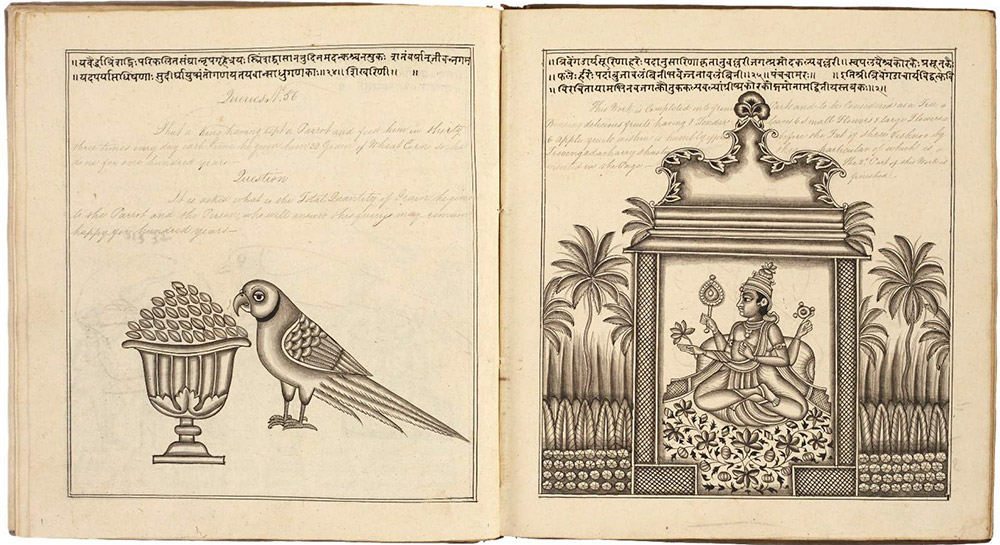Dating from 1821, this manuscript is a collection of mathematical and logic
problems given in their original Sanskrit with an English translation.
The Sanskrit text is accompanied by finely executed illustrations in black ink and grey wash. The pages are bound together in red leather with a floral design.
The manuscript title is given as Juggut Coutook Culpwallee and the compiler’s name is noted as ‘Trevengacharry Shastry inhabitant of Treputtee, now in Poona’. This name can be found in further sources as Trivenkatacharya and other variations.
The English introduction suggests that the work was compiled on behalf of a member of the East India Company, probably only a few years after the British conquest of Poona in 1817. It may have been intended as the basis for a printed edition, or as a standalone work.
Trivenkatacharya’s name occurs in a number of contemporary sources as a local chess master, capable of beating all opposition. He acquired fame beyond India through the publication of a work on the game, Essays on Chess, published in Bombay in 1814. He also produced a version of the board game Snakes and Ladders based on Hindu theology.
Trivenkatacharya produced at least two copies of this manuscript, probably with the intention of demonstrating to Poona’s new British rulers the value of Indian traditions in the science of mathematics. The other copy is now in Edinburgh University Library.
Cambridge University Library holds one of the most important Sanskrit collections in the world, mostly collected in the late 19th century from Nepal and India. Trivenkatacharya’s manuscript now presents a rich opportunity for the study of mathematics and Anglo-Indian cultural history, as well as being an exquisite object in its own right.
